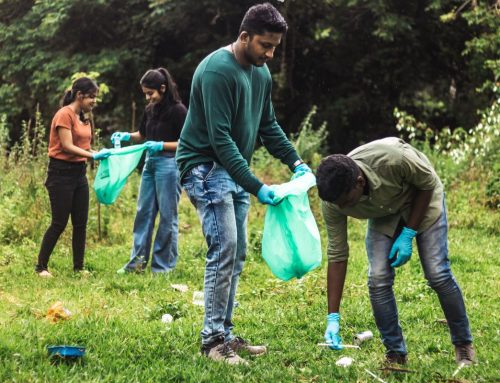Traveling is an incredible experience that allows us to explore new destinations, cultures, and create unforgettable memories. However, it’s no secret that travel often generates a significant amount of waste, from single-use plastics to disposable items used on the go.
Embracing a zero-waste approach to travel represents a conscious effort to minimize waste generation during our journeys, ensuring that our explorations contribute positively to the environment.
Zero-waste travel is a philosophy that encourages travelers to reduce, reuse, and recycle throughout their trips, aiming to limit the environmental impact associated with tourism. It involves mindful planning, sustainable choices, and adopting eco-friendly practices to minimize the waste generated while on the move.
The Journey to a Better World
Zero waste tips for travel embodies the idea of traveling responsibly, respecting local environments, and leaving a positive impact on the places we visit. It’s an opportunity to explore the world while actively contributing to a more sustainable and environmentally conscious global community.
24 tips for a zero-waste travel
Here are some tips to help minimize waste while traveling:
Bring Reusable Essentials
Packing reusable items is key. Consider carrying a sturdy stainless steel water bottle to quench your thirst on the go. A travel mug is perfect for your coffee fix, while a set of reusable utensils keeps disposable plastic at bay. Don’t forget a handy cloth tote bag for any shopping and a reusable straw to sip your beverages sustainably.
Use Reusable Food Wraps
As like the tip above, replace disposable plastic wraps or Ziplock bags with our reusable food wraps. They are versatile for storing snacks or leftovers without generating single-use plastic waste. And the Boc’n’Roll or Snack’n’Go, are the perfect reusable food carriers for traveling.
Use Refillable Toiletry Containers
Ditch the tiny, single-use toiletries. Instead, opt for refillable containers to house your favorite shampoo, conditioner, body wash, and other personal care essentials. It not only reduces plastic waste but also ensures you use products that suit your preferences.
Pack Your Zero-Waste Kit
Embrace a zero-waste kit! Carry cloth napkins for meals and beeswax wraps for food storage. A compact travel cutlery set and a small container for leftover food are handy for avoiding disposable items during meals and snacks.
Choose Eco-Friendly Accommodations
Prioritize accommodations that champion sustainability. Seek hotels with eco-initiatives like refillable soap dispensers, recycle bins in rooms, and commitments to waste reduction through programs such as linen reuse schemes.
Shop Local and Package-Free
Explore local markets and shops that offer package-free items or products with minimal packaging. Carry your reusable bags or containers for shopping, reducing the need for additional plastic bags.
Bring a Reusable Water Filtration System
Consider investing in a portable water filter or purifier. This gadget allows you to refill your water bottle from taps or natural water sources, eliminating the need for purchasing bottled water and reducing plastic waste.
Dispose of Waste Responsibly
Take responsibility for waste disposal. Segregate recyclables and waste as per local recycling guidelines. Carry a small trash bag or container to collect trash until you find appropriate disposal facilities.
Support Zero-Waste Dining
Choose eateries or restaurants that prioritize sustainable practices. Look for places using reusable tableware, offering locally sourced meals, or facilitating composting of food scraps, contributing to a waste-free dining experience.
Offset Your Carbon Footprint
Consider contributing to carbon offset programs to counteract your travel-related emissions. Several organizations offer opportunities to support environmental initiatives that balance out the impact of your carbon footprint from traveling.
Pack a Versatile Travel Kit
Make your toiletries eco-friendly by opting for multi-purpose solid bars. Bring a versatile bar of soap suitable for both body and laundry needs. Solid shampoo and conditioner bars are great options too; they minimize liquid waste and are travel-friendly, saving space in your luggage.
Go Digital with Tickets and Itineraries
Embrace technology and reduce paper waste by utilizing electronic tickets, maps, and travel guides on your smartphone or tablet. This not only saves paper but also keeps your travel documents organized in one place for easy access.
Choose Sustainable Transportation
Prioritize eco-conscious transportation options whenever possible. Opt for trains, buses, or biking, as they have significantly lower carbon footprints compared to air travel. Additionally, they often allow for a more immersive and scenic travel experience.
Practice Zero-Waste Sightseeing
Engage in environmentally friendly activities to enjoy the outdoors without generating waste. Consider hiking trails, nature walks, or visits to parks, appreciating nature’s beauty without leaving behind litter or waste.
Use Rechargeable Electronics
Bring along rechargeable batteries or a portable power bank for your electronic devices. This reduces the need for disposable batteries during your travels, minimizing electronic waste and ensuring your devices remain powered.
Donate or Reuse Maps and Brochures
If you collect paper maps or brochures during your travels, pass them on to other travelers or donate them to local information centers instead of discarding them. This way, others can benefit from the resources without generating additional waste.
Support Green Tours and Experiences
Choose eco-friendly tours and experiences that prioritize environmental conservation and education. Seek activities organized by companies or guides committed to sustainability, contributing positively to local conservation efforts.
Offset Travel Emissions
Consider participating in carbon offset programs or initiatives to balance out the carbon emissions produced by your travel. Support environmental projects that aim to mitigate the environmental impact of your journey, contributing to a more sustainable travel experience.
Engage in Beach or River Cleanups
If your travels take you to coastal or riverside areas, join or organize beach or river cleanups. Contribute to local conservation efforts by dedicating a few hours to collect litter and prevent it from polluting water bodies.
Explore Rental and Borrowing Services
Instead of purchasing items for short-term use, consider renting or borrowing gear and equipment, such as camping gear, sports equipment, or specialized attire. This reduces unnecessary purchases and promotes resource-sharing.
Utilize Eco-Friendly Apps
Use apps focused on sustainable travel, offering guidance on eco-friendly accommodations, responsible tours, and environmental initiatives. Apps like Ecobnb, HappyCow, or Ecosia can assist in finding green alternatives.
Opt for Eco-Friendly Souvenirs
When purchasing souvenirs, choose items that support local artisans, made from sustainable materials or upcycled products. Avoid items made from endangered species or materials contributing to deforestation.
Encourage Others
Share your zero-waste travel experiences and tips with fellow travelers, friends, and online communities. Inspire others to adopt sustainable practices and raise awareness about the importance of responsible tourism.
Leave No Trace Principles
Embrace the Leave No Trace principles by minimizing your impact on natural areas. Respect wildlife and ecosystems, and leave landscapes as you found them, preserving their natural beauty for future generations to enjoy.
Advantages of this type of travels
Zero-waste travel offers numerous advantages that not only benefit the environment but also enhance the overall travel experience. Some of these advantages include:
- Reduced Environmental Impact: By minimizing waste generation, zero-waste trips significantly decrease the amount of plastic pollution and landfill waste, preserving natural environments and ecosystems in the destinations visited.
- Conservation of Resources: Zero-waste travel encourages the conservation of resources such as water, energy, and materials by promoting the use of reusable items, thus reducing consumption and waste production.
- Supports Local Economies: Embracing sustainable practices often involves supporting local businesses that prioritize eco-friendly products and services, contributing positively to local economies and communities.
- Healthier and Cleaner Destinations: A focus on zero-waste practices means leaving behind cleaner and healthier environments for both locals and future travelers, enhancing the quality of destinations visited.
- Enhanced Travel Experience: By adopting a zero-waste mindset, travelers often engage more deeply with local cultures, connect with sustainable initiatives, and appreciate the natural beauty of destinations without contributing to their degradation.
- Cost Savings: By reducing the purchase of disposable items and utilizing reusable alternatives, travelers can save money in the long run on buying single-use products during their trips.
- Promotion of Sustainable Tourism: Zero-waste travel practices set an example for responsible and sustainable tourism, encouraging others to adopt similar habits and fostering a culture of environmental consciousness in the travel industry.
- Personal Fulfillment: Engaging in eco-friendly travel practices can lead to a sense of personal fulfillment and satisfaction, knowing that one’s travels have had a positive impact on the environment and local communities.
- Minimized Carbon Footprint: Zero-waste travel often involves choosing more eco-friendly transportation options, reducing carbon emissions and contributing to global efforts to combat climate change.
- Education and Awareness: Zero-waste travel provides an opportunity for travelers to learn about environmental issues, sustainable practices, and ways to make a positive impact, fostering a greater sense of environmental awareness and responsibility.

Take care of the other cities
By focusing on waste reduction, zero-waste travel encourages individuals to rethink their packing strategies, opt for reusable and eco-friendly products, and prioritize responsible consumption habits during their adventures.
This approach seeks to mitigate plastic pollution, lower carbon emissions, conserve resources, and promote environmental stewardship while exploring new destinations.
Embracing a zero-waste mindset during travel involves creative solutions such as packing reusable essentials, choosing accommodations that prioritize sustainability, supporting local businesses, minimizing single-use plastics, and properly managing waste generated during the journey.
It’s about making conscious decisions that prioritize the planet’s health without compromising the enjoyment of travel experiences.
We can help you with our zero-waste products
With our reusable sandwich bag and the reusable snack bag, we can help you reduce your waste production, not only on your travels but in your daily life.










